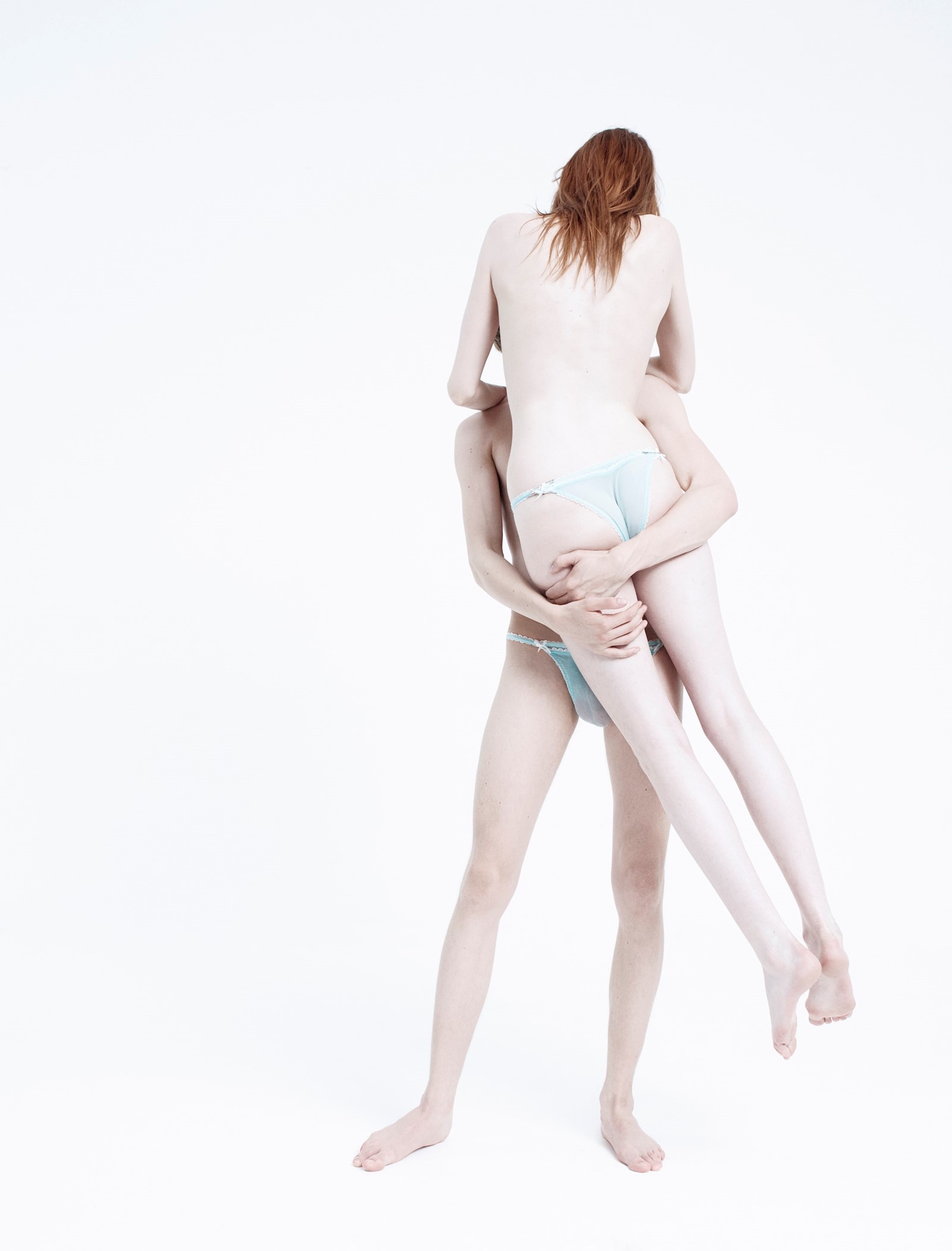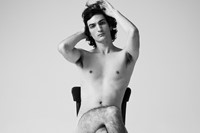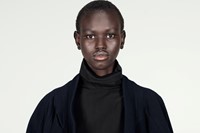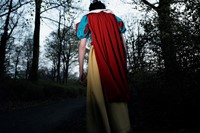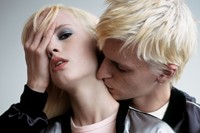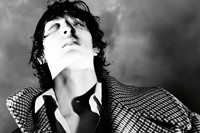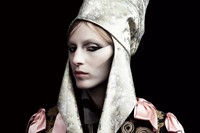The crowds at the opening of Willy Vanderperre’s new exhibition at Antwerp’s MoMu were a testament to the photographer’s indelible mark on the medium. Designers Raf Simons, Walter Van Beirendonck, Ann Demeulemeester, Matthieu Blazy and Pieter Mulier arrived among droves of top models, artists and fashion-inclined celebrities to catch an early glimpse of Willy Vanderperre: Prints, Films, a Rave and More …. Each of the invitees were collaborators or friends, some of them whom Vanderperre had met in his career infancy as a student of Antwerp’s Royal Academy of Fine Arts. The mammoth new show distils almost three decades across his intertwined fashion and fine art practices, where he’s crafted a universe that draws on the expressive and emotional power of youth, and the subcultures that they form.
Since his emergence in the early 2000s, the Belgian photographer’s images have become landmark; from those early days following in the footsteps of the Antwerp Six, photographing editorials with this very magazine, Vogue, W and Dazed, to campaigns for fashion houses like Dior and Prada. He’s the photographer who captured the pictures you’d torn from magazines to stick above your bed back in your teens, as an early manifestation of his romantic world of beauty and angst. By virtue of this, there’s some heady nostalgia in the exhibition space, where visitors are reacquainted with these same formative images – 250 of them in total – which come plastered on the walls, framed, blown up to the size of murals and shrunken down to postcards. Memories take the form of memorabilia, becoming T-shirts, stickers and printed towels, or badges haphazardly taped up.
Admittedly, a fashion photographer depicting youth in no way defies convention, but Vanderperre’s renderings are a far cry from dreamlike coming-of-age scenarios whipped up in some nostalgic fantasy land. There’s something honest and raw in his stark portraiture, centred in the still expanses of negative space, where his subjects are discovered at ease, gently humming with an innately youthful aura. “A good photograph is a snapshot of pure emotion,” he says. “In that moment, the model lifts the veil from their soul. We see uncalculated, unvarnished, highly individual, and therefore universal humanity.”
Here, to coincide with the exhibition’s opening, Willy Vanderperre tells the stories behind five of the show’s most potent photographs.
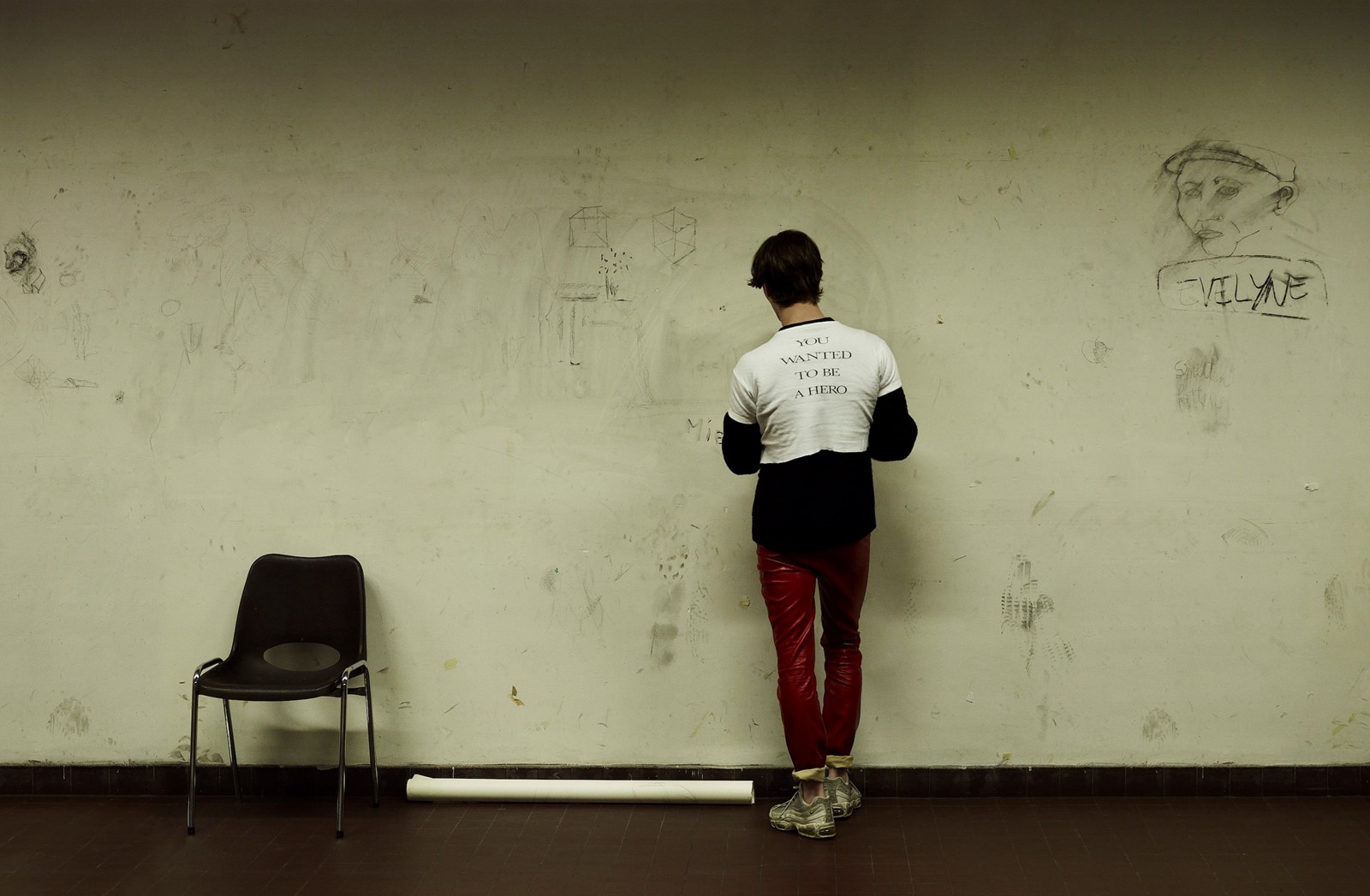
Robby for Arena Homme +, 2010
“The exhibition had to open with this picture. I came to the Royal Academy of Antwerp [in 1989] when I was 18. I come from a small village, and I’d said to my mother that I needed to be there at least a week in advance to understand the city. When I arrived, Olivier [Rizzo] was walking on the other side of the street – some people just have that aura. It was like everything else faded. I felt like I needed to know that person. Even at night, I remember thinking about that person I saw walking on the other side of the street. He was so beautiful – because let’s be honest, the first attraction is always physical.
“I came into school to pay my tuition on my first day, and he was walking in the same corridor as me. He was in the same year as me. I was so, so happy. We chatted. There were about 150 students who wanted to be fashion designers, so we were divided into three classes – he was group two, I was group three. The only time where we would meet would be in our drawing class. Even when we were an item, living with each other, it would be the one period during school when we were in the same room. In 2010, we went back to that room for Arena Homme +, and we named our [fashion editorial] the Dream Academy because it’s where our dream started. The school had changed so much, but that class was exactly the same. We cast boys on the street and we dressed this guy in an outfit from Olivier’s second-year collection. ‘You wanted to be a hero’ is on the T-shirt: at that point in your youth, you feel aspirational. You’re young and naive, and you’re looking for the future. [The exhibition] had to start with that one, because it’s where it all began. It’s a celebration of everything combined.”
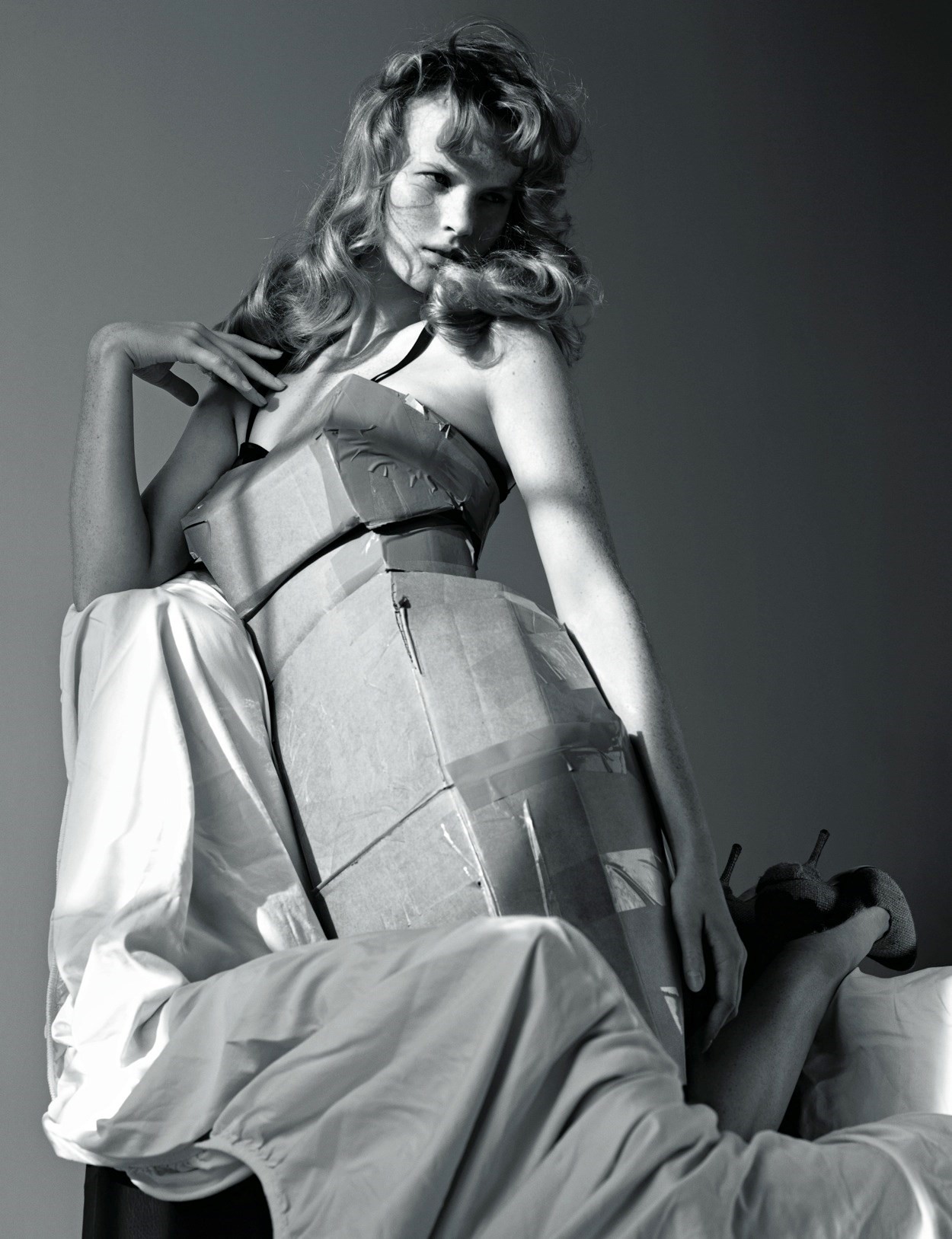
Anne Vyalitsyna for AnOther Magazine, 2009
“The theme of this shoot was bored 1950s housewives that do homemade porn, so we called it Homemade Erotica. Sometimes [mine and Olivier Rizzo’s concepts] are as random as that. Lara Stone and Anne Vyalitsyna were there. Olivier Rizzo – of course not only is he my husband, but he’s a super talented consultant-stylist, and he has such a beautiful eye for detail and construction. The clothes [for the shoot] came in these big cardboard boxes. The idea was homemade erotica, and Olivier took it to a whole new level of homemade: he took the cardboard, ripped it, shredded it, taped it, and then all of a sudden Anne V came out wearing it as a dress. It was just such a magical moment.
“[In the exhibition] we put this image next to an image of a Dior couture dress by Raf Simons. I wanted to show that the [cardboard dress] is equally as important to me as couture is. When we start out, we don’t all have the ability to get a Dior dress, but this, to me, is equally as impactful as couture. It’s a message I want to continue to say to younger kids: they all want to shoot that amazing Balenciaga look for instance, but it can also be a cardboard dress that you fabricate yourself, and it will be just as impactful.”
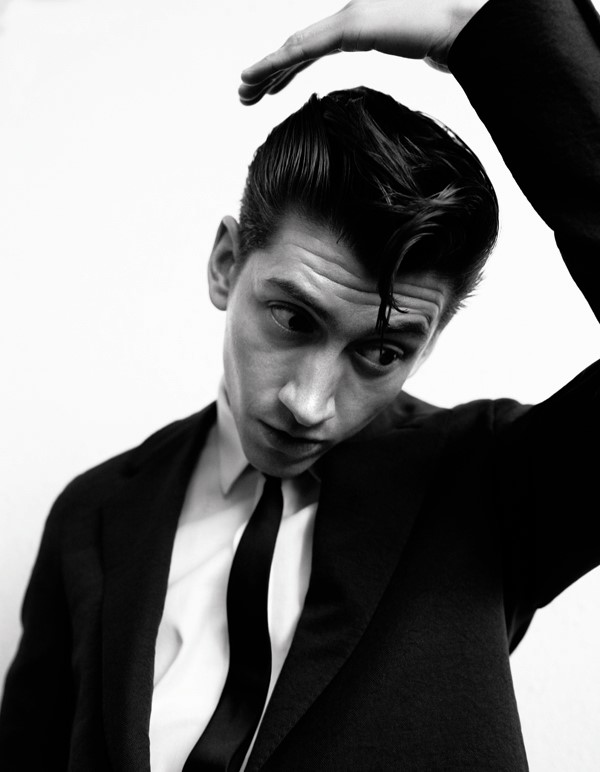
Alex Turner for Another Man, 2013
“You’re always shy when you’re meeting your heroes because they might be disappointing people. Alex Turner turned out to be the exact opposite, he was just amazing. We went to LA to shoot him [for Another Man], and it was just this magical moment. The light in LA can be really hard, but when it gets diffused it’s just magical. It felt like one of those days where everything was in our favour. That motel was brilliant, the styling was heavenly – Alister Mackie styled him, of course – and he was very supportive of every action we wanted, because he’s very shy being photographed. Sometimes celebrities come with a big gang around them, and he was there on his own. Did he jump in the pool? Unfortunately not. But did he jump off the ledge? No, unfortunately not. He did not do our ‘Iggy Pop moment’, but hey, it was a spectacular day, and he’s a brilliant artist and talent.”
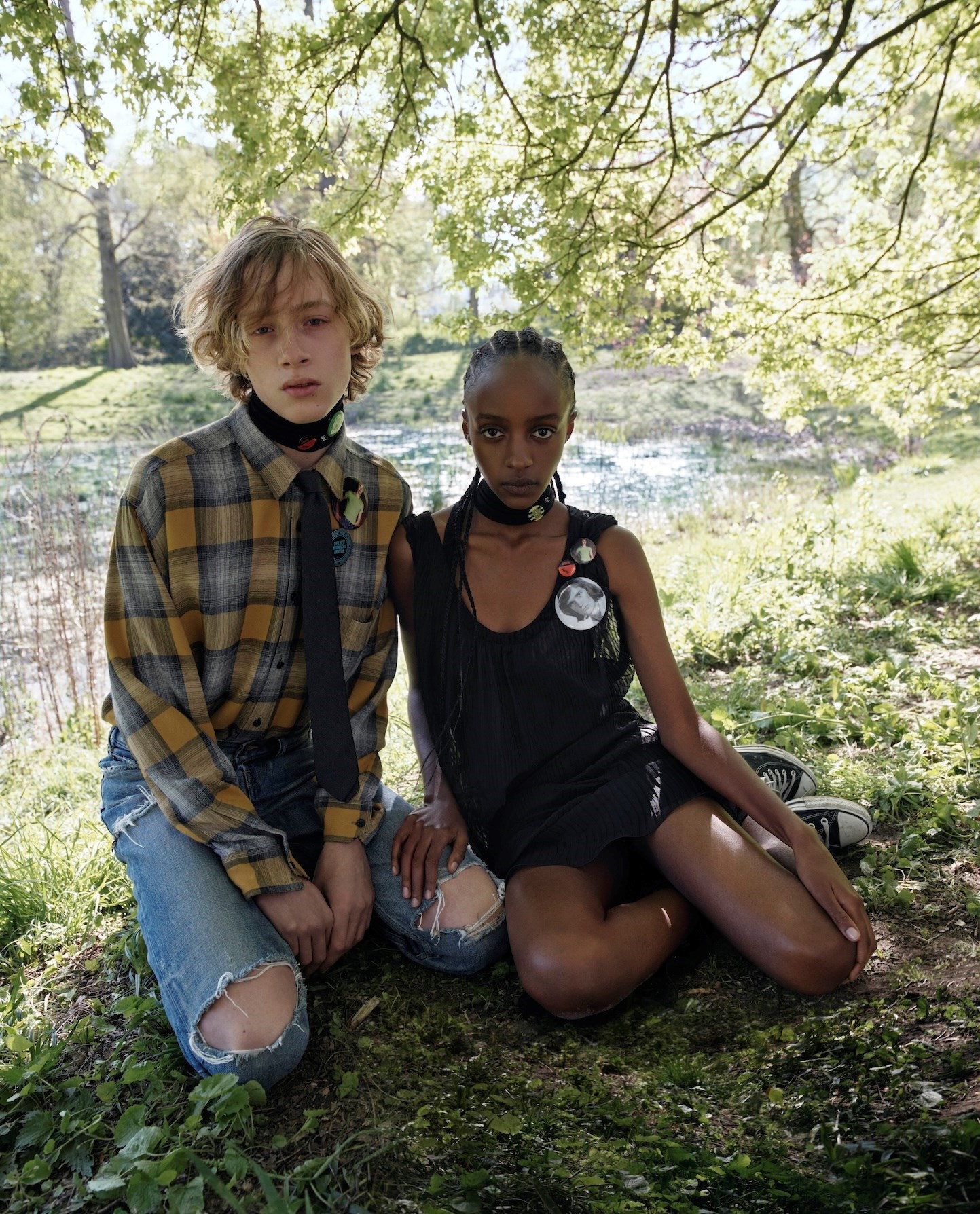
Oskar and Metta for Vogue Italia, 2021
“This is shot at a park near where I live. It’s not the biggest park, but it’s a beauty. It’s super inspiring to go to and I love being there. We invited a lot of kids to be on that shoot. There’s something so beautiful about a meeting in a park. When you walk through the park, it’s so endearing to see those young people meeting each other and spending quality time, so focused on each other. I tried to capture that innocence. Of course, it was [styled with] a lot of Raf Simons, because Raf is that designer who puts his main focus on youth cultures, and on providing them with a wardrobe. It was magical to see all those kids together, being able to connect with them, and also let them be by themselves. It was a beautiful energy between all those young kids.”
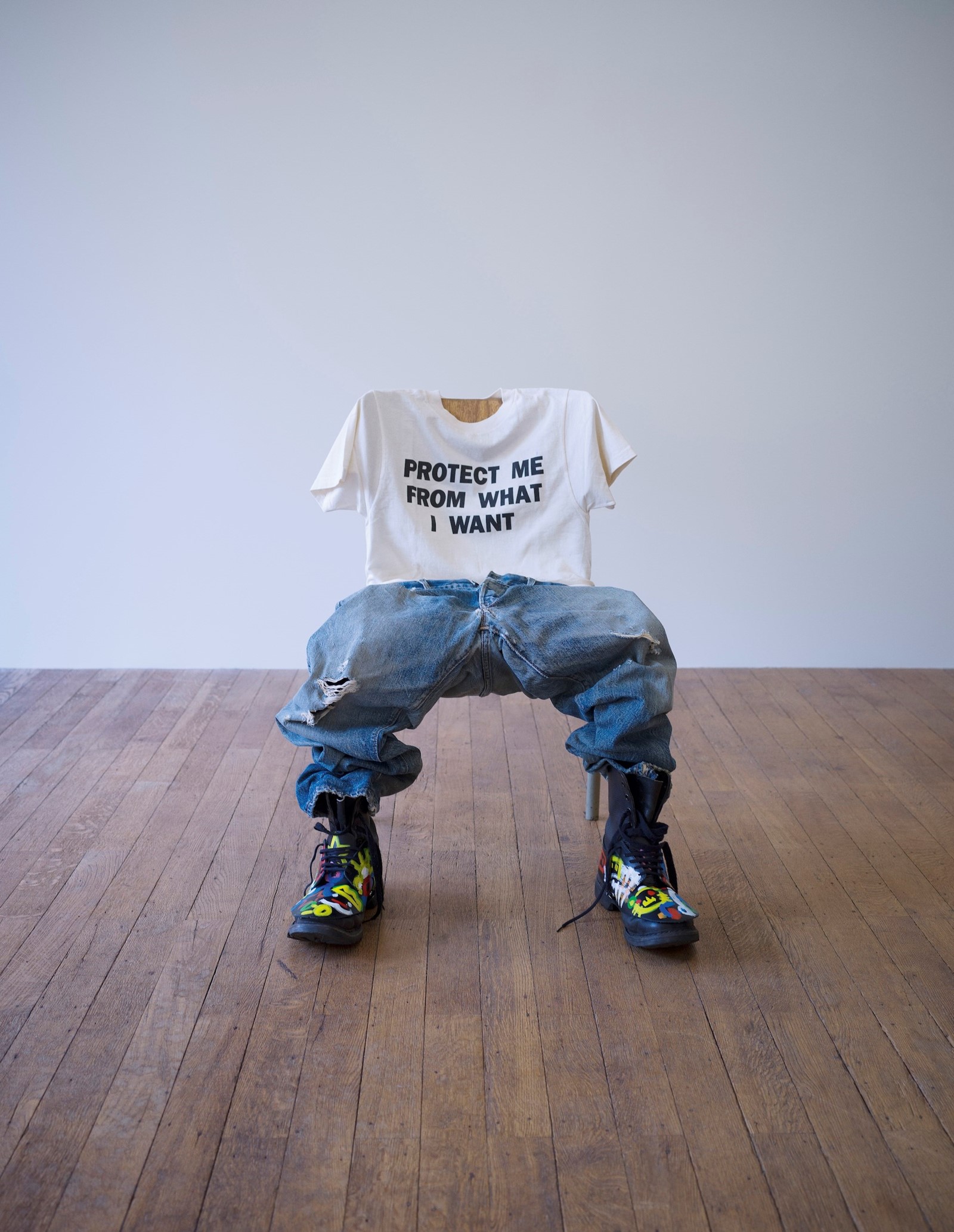
Protect Me From What I Want for Dust, 2020
“The final image that we get [in the exhibition] is Protect Me From What I Want, just because it’s such a powerful sentence. And it’s a powerful image for me because it’s like the [show’s opening image], You Wanted To Be A Hero. My favourite club in the world is Club 55, which you’ll see if you walk through the exhibition. It was also the first time I ever heard techno. The waiters were wearing ‘Protect Me From What I Want’ T-shirts on their backs, and at that point, I didn’t know what it was. It made me start looking into Jenny Holzer, who is now really important to me. We shot this [for Dust] during Covid, when we had to work with an empty chair. Brands couldn’t lend out material. You couldn’t lend out lighting. You could not work with models. So we dressed up an empty chair. From ‘You Wanted To Be A Hero’ to ‘Protect Me From What I Want’, we thought it would make a good exit.”
Willy Vanderperre Prints, Films, a Rave and More … is on show at MoMu in Antwerp, Belgium until 4 August 2024.
